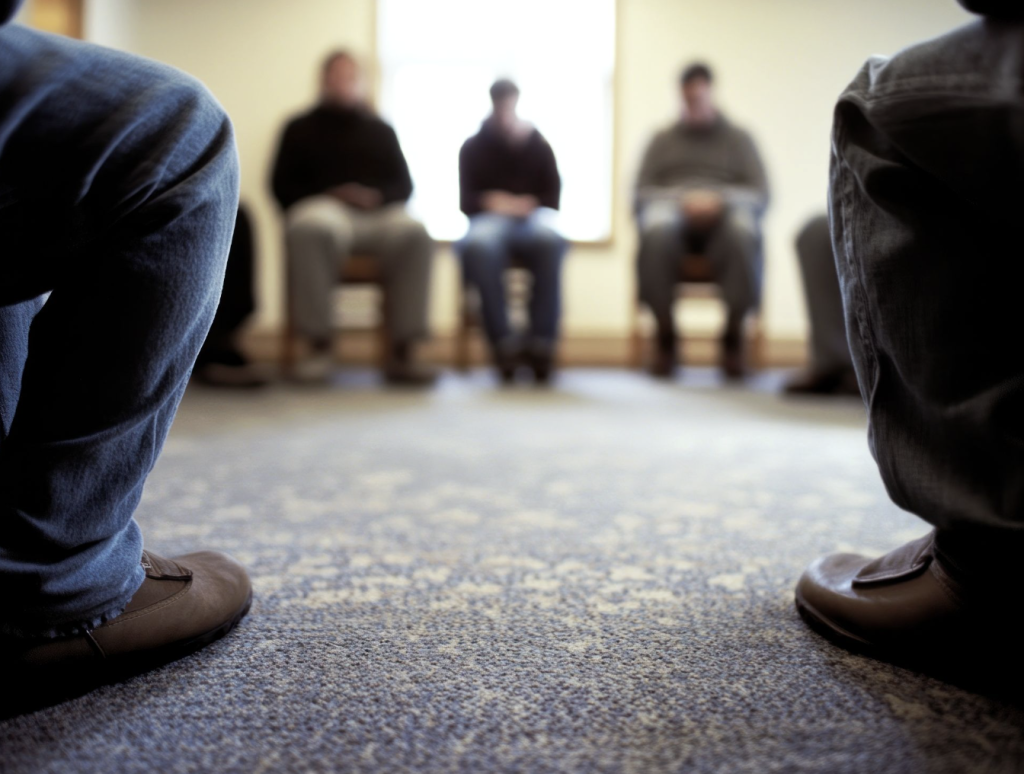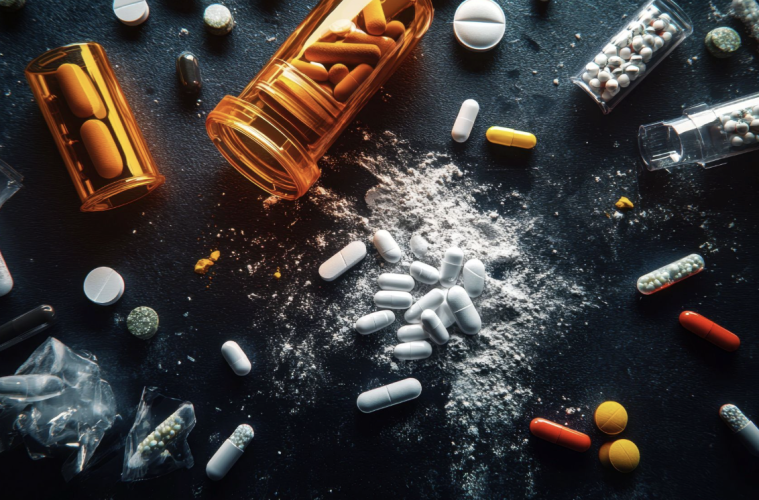|
Key Takeaways •Heroin recovery requires medical support, especially during detox, to safely manage withdrawal symptoms and reduce the risk of relapse. •Long-term treatment works best when it combines therapy, medication options, and support for co-occurring mental health challenges. •Understanding personal triggers and developing a strong relapse-prevention strategy are essential for maintaining long-term sobriety. •Emotional healing, including addressing trauma, rebuilding relationships, and learning healthier coping skills, plays a major role in recovery. •Choosing a compassionate, evidence-based treatment program with qualified medical and mental health professionals strengthens your chances of lasting success. |
Finding your way out of heroin addiction is one of the toughest journeys you can face, but it’s also one of the most life changing. You might feel overwhelmed, ashamed, or unsure where to start. That’s completely normal.
Recovery isn’t a straight path, and no one expects you to have everything figured out from day one. What matters is that you’re trying to understand your options and take your first steps toward a healthier, safer life.
When you’re dealing with heroin, you’re not just fighting a drug. You’re fighting habits, emotions, physical dependence, and often the life circumstances that led you there in the first place. That’s exactly why having the right guidance, support, and treatment plan is so important.
Understanding Heroin and Its Impact on the Body
Before you can break free, it helps to understand what heroin does inside your body. Heroin taps into your brain’s reward system, causing intense pleasure at first. But over time, your brain adapts and demands more of the drug just to feel normal. This is how drug addiction develops, and it’s why quitting without help becomes so difficult.
When tolerance builds, your body begins to rely on heroin. That dependence creates a range of health problems, from digestive issues to physical withdrawal. It also increases the risk of opioid overdose, which can be fatal. People often underestimate how strong these physical and psychological hooks can be, especially when cravings for heroin hit unexpectedly during stressful moments.
If you’re pregnant or know someone who is, it’s also important to understand how heroin affects babies. The drug can cause neonatal abstinence syndrome, a condition where newborns suffer withdrawal because of exposure during pregnancy. This makes treatment crucial not just for the parent, but for the baby’s future well-being.
The Challenges of Taking the First Step
Many people try to stop on their own, only to find the symptoms of heroin too intense. These often include anxiety, sweating, tremors, and bone pain, which can convince someone to use again just so the discomfort will stop.
Such a cycle can make you feel trapped, but the good news is you’re not expected to manage this alone, and professional help addresses these issues safely and effectively. Programs offering rehab for heroin addiction give you medical, emotional, and structured support so you’re not fighting the battle unsupported.
What to Look for in a Treatment Facility
If you’re evaluating centers, pay attention to the staff, approach, and environment. The presence of a qualified medical doctor and access to mental health professionals ensure you receive comprehensive care. Facilities that understand substance use disorders also provide better guidance throughout your journey.
Look for places that treat you like a lifelong partner in recovery rather than a statistic. Programs should be flexible, supportive, and personalized. That’s how you know they value your success.
The Detox Phase and What to Expect
One of the scariest parts of getting clean is detox. But with proper supervision, the detox process becomes safer and far more manageable.
Some people fear detox because they’ve heard horror stories. Others assume they’ll face extreme pain. While withdrawal is uncomfortable, the experience varies depending on your history, tolerance, and health. Some people experience lighter symptoms, while others feel more intense discomfort. A medically supervised program helps reduce these issues, giving you medications and support to ease the transition.
During heroin detox, doctors may use medication-assisted treatment to stabilize you. These medications bind to the same receptors heroin does, but without producing the same high. They also help reduce dangerous withdrawal effects, protect you from relapse, and keep you safe during your most vulnerable phase.
If you’ve ever wondered why so many people return to heroin soon after quitting, it’s because unmanaged withdrawals increase relapse rates significantly. Getting supervised detox is one of the most effective ways to lower this risk.
Moving Into Long-Term Therapy and Recovery
Detox is just the first step. True freedom from heroin requires ongoing support, learning new skills, and rebuilding healthier patterns.
A personalized treatment for heroin addiction often includes counseling, group therapy, family involvement, medical monitoring, and lifestyle planning. These elements work together to help you break old habits and build a stable routine that supports sobriety.
When working with professionals, your medical records help guide the best approach for your physical and emotional needs. Having a medical doctor on staff ensures that each phase of treatment is monitored safely.
Treatment also helps you understand your own journey with heroin. Everyone has an individual drug experience, influenced by environment, stress, personality, and relationships. Exploring these factors helps you recognize patterns of behavior so you can replace them with healthier routines.
Why Evidence-Based Treatment Matters
Recovery isn’t guesswork. Effective care uses science-backed methods and a supportive environment to help you safely break free from heroin. This includes medical supervision, therapy, and long-term support.
Professional treatment helps you understand your triggers, manage emotions, rebuild relationships, and develop habits that protect your sobriety. It also takes into account any mental health issues or underlying trauma, which often drive people toward opioid use in the first place.
This is why a good program feels like compassionate care rather than punishment. You’re treated as a whole person, not just a diagnosis.
The Role of Therapy in Your Recovery
Therapy is a structured, evidence-based tool that helps you break the psychological hold heroin has on your mind. Cognitive hehavioral therapy becomes one of the most effective tools as you go deeper into recovery. It’s widely used in mental health care because it teaches you how your thoughts shape your behaviors.
Many people with heroin addiction discover that using drugs becomes a coping mechanism for emotions they never learned to manage — fear, sadness, anger, or loneliness. If you often think, “I can’t cope without using,” CBT helps you challenge that belief and replace it with something healthier. It’s powerful because it teaches you to take control of your choices rather than letting automatic thoughts guide your actions.
In the context of drug addiction treatment, CBT also helps reduce shame. You learn that your patterns didn’t form randomly; they developed from past experiences, emotions, and coping mechanisms. This makes it easier to forgive yourself and move forward with confidence.

Understanding the Emotional Side of Recovery
Recovery isn’t only physical. It’s deeply emotional. You may experience guilt, shame, fear, or even grief once you stop using heroin. These feelings are normal because you’re facing life without a numbing substance for the first time in a long while.
It’s also important to remember that a person with heroin addiction often carries emotional wounds, sometimes hidden even from themselves. Acknowledging these issues becomes a major step toward lasting healing.
Working with licensed counselors helps you process those emotions safely. They support you as you rebuild trust, strengthen communication, and repair strained relationships caused by heroin use.
Exploring Medication Options and Clinical Support
Medication plays a huge role in recovery for many people. In an opioid treatment program, doctors may prescribe medicines that stabilize your brain chemistry and reduce cravings. This medical structure increases compliance among users, especially in the early stages when temptation is strongest.
But it’s only one part of a larger recovery strategy. When combined with counseling, lifestyle changes, and a strong support network, medications become an effective addiction treatment option.
Lifestyle Changes That Strengthen Your Recovery
While therapy and medication are powerful, the daily choices you make also play a major role in your healing. Recovery is a lifestyle, not a single event.
Healthy practices can reduce stress, regulate your emotions, and help your body repair itself after the harsh effects of heroin. Some people find comfort in journaling, while others explore exercise, mindfulness, or creative outlets.
You can also incorporate other self-care techniques to stay grounded. These might include meditation, spending time in nature, improving your sleep habits, or building supportive friendships. Every positive choice you make strengthens your resilience.
Support Systems and Long-Term Stability
Recovery is easier when you don’t walk the path alone. Friends, family, mentors, and recovery groups can all offer encouragement during tough moments. These people remind you why you chose sobriety and help you stay motivated.
A strong support system becomes your foundation. Over time, sobriety becomes a part of your identity. It’s not something you fight daily, but something you protect and value. With the right team beside you, recovery starts to feel less like a battle and more like building a new, healthier future.
A Closer Look at Thought Patterns and Triggers
One of the most crucial skills in recovery is understanding your triggers. These triggers often fall into three categories: emotional, social, and environmental. You may feel pulled back into heroin because of stress, peer pressure, shame, or unresolved memories.
Therapists help you break down relapse thought patterns. These are the mental scripts that convince you to use again. Understanding these thoughts makes it easier to interrupt the cycle of relapse before it starts. You begin to recognize when your mind is steering you toward danger and learn how to pull yourself back.
Developing Your Long-Term Relapse Prevention Strategy
A relapse prevention approach is crucial for maintaining sobriety. Think of it as building a safety net around your recovery.
Your plan might include:
- Identifying high-risk situations and practicing safer responses
- Creating daily routines that support stability and confidence
- Building a support team, including relapse prevention therapists
- Having emergency strategies for moments when triggers hit hard
This kind of planning becomes your shield against unexpected challenges. It also ensures that your relapse prevention plan is realistic, robust, and tailored to your individual needs.
Good facilities also prioritize quality care, ensuring every aspect of treatment supports your healing. From safe detox to therapy and family involvement, every step contributes to long-term success. This combination becomes a critical ingredient for success, especially for those who have struggled with repeated relapses.
Staying Clean and Building a New Life
Recovery isn’t just about quitting heroin. It’s about rediscovering who you are and rebuilding your life with purpose.
When you choose sobriety, you’re choosing stability, safety, and the freedom to create a meaningful future. With the right combination of medical care, therapy, support, and daily healthy habits, you can break free from heroin and protect your progress for years to come.
You’re capable of recovery. You’re capable of change. And every step you take, no matter how small, brings you closer to the life you deserve.
Published by HOLR Magazine.


